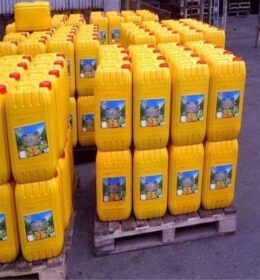Selling Agricultural and Food Products: A Comprehensive Guide for Success
The agricultural and food industry in Ghana holds immense potential for entrepreneurs looking to sell products in this thriving sector. Whether you’re involved in farming, livestock rearing, or food processing, effectively marketing your agricultural and food products is crucial to achieving success. In this comprehensive guide, we will explore various key aspects of selling agricultural and food products, including farm machinery and equipment, feeds, supplements and seeds, livestock and poultry, as well as meals and drinks.
Farm Machinery and Equipment:
Farm machinery and equipment play a vital role in agricultural operations, improving productivity and efficiency. If you specialize in selling farm machinery and equipment, follow these tips to maximize your sales potential:
a) Research the Market:
Understand the specific needs and preferences of Ghanaian farmers. Determine the types of machinery and equipment that are in high demand, such as tractors, harvesters, irrigation systems, or storage facilities.
b) Provide Detailed Product Information:
Create comprehensive agricultural product listings that include detailed descriptions, specifications, and images of the machinery and equipment you are selling. Highlight key features and benefits to attract potential buyers.
c) Offer After-Sales Support:
Provide excellent customer service, including after-sales support, warranty information, and maintenance advice. Building a reputation for reliability and customer satisfaction can lead to repeat business and positive word-of-mouth recommendations.
Feeds, Supplements, and Seeds:
Feeds, supplements, and seeds are essential for livestock and crop production. If you specialize in selling these products, consider the following:
a) Quality Assurance:
Ensure that the feeds, supplements, and seeds you sell meet high-quality standards. Partner with reputable suppliers and brands known for their reliability and superior products. This will build trust with your customers.
b) Targeted Marketing:
Identify your target audience, such as farmers, livestock owners, or horticulturists. Develop targeted marketing strategies to reach these specific customer segments through online platforms, agricultural exhibitions, or local farming communities.
c) Educate Customers:
Provide educational resources on the benefits and proper usage of the feeds, supplements, and seeds you sell. This will help potential buyers understand how these products can enhance their agricultural endeavors and increase their yields.
Livestock and Poultry:
The livestock and poultry sector in Ghana presents opportunities for selling animals, breeding stock, and related products. Consider the following when selling livestock and poultry:
a) Animal Health and Welfare:
Prioritize the health and welfare of the animals you sell. Ensure that they are well-cared for, properly vaccinated, and free from diseases. Provide customers with detailed information about the animals’ breed, age, weight, and any relevant certifications.
b) Build Trust: Establish a reputation for transparency and reliability
Maintain open communication with potential buyers, answer their questions, and provide additional information about the animals’ lineage, feeding practices, and living conditions.
c) Networking: Network with farmers, breeders, and agricultural associations to connect with potential buyers. Attend livestock shows, auctions, and exhibitions to showcase your animals and make valuable connections within the industry.
Meals and Drinks:
The meals and drinks sector encompasses various processed and value-added agricultural products. If you specialize in selling these items, consider the following strategies:
a) Unique Selling Proposition: Identify the unique features and qualities of your meals and drinks, such as local ingredients, traditional recipes, or health benefits. Highlight these factors to differentiate yourself from competitors and attract customers looking for distinct food and beverage options.
b) Packaging and Branding: Invest in attractive and informative packaging that reflects the quality and essence of your products. Develop a strong brand identity that resonates with your target market, using catchy slogans, appealing logos, and consistent branding across your marketing materials.
c) Distribution Channels: Explore various distribution channels, such as supermarkets, local stores, online platforms, or direct-to-consumer models. Choose channels that align with your target market and provide convenience for customers to access your agricultural products in Ghana.
In conclusion, selling food and agricultural products in Ghana requires a comprehensive approach that considers the unique aspects of each sector. By understanding the market, providing detailed information, focusing on quality, targeting marketing efforts, building trust, and utilizing appropriate distribution channels, entrepreneurs can position themselves for success in the agricultural and food industry. With these strategies in place, you’ll be well on your way to achieving your sales goals and contributing to the growth of Ghana’s agricultural sector.





Leave a Reply